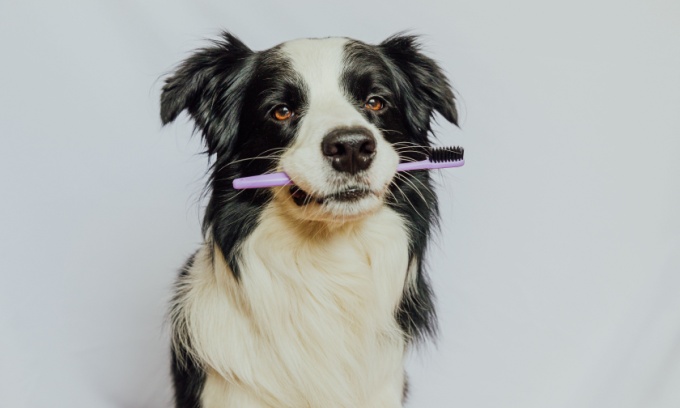The Australian Veterinary Association (AVA) says that good oral hygiene for your pets is necessary to prevent oral and dental diseases. If left untreated, oral diseases are not only painful, they can also contribute to further health problems and diseases in pets down the track. Therefore, it’s important to look after your vet’s oral health, but does dog dental insurance exist? What about teeth cleaning for cats? Here are some important things to know.
Does pet insurance cover dental?
As a general rule, pet insurance in Australia does not cover dental care as standard, and while it can be purchased, you’ll typically have to pay to have it included as an optional extra. There are three types of pet insurance in Australia – accident only cover, accident and illness cover, and comprehensive cover, which has the broadest range of inclusions and is generally the most expensive. Where dental pet insurance is available, it tends to be sold as an add-on to comprehensive cover.
Some pet insurance providers will offer a ‘routine care’ package, which can include preventive care like vaccinations and heartworm medications as well as teeth cleaning and dental check-ups. Some insurers may include dental care as part of an extras package that also includes supportive therapies or treatment for behavioural conditions. If dental care is something you are looking for in a policy, you may want to double check the fine print and read the Product Disclosure Statement (PDS), and specifically request dental care when seeking out a quote.
What is covered by a pet dental insurance policy?
While it’s uncommon to find pet insurance including dental cover, it’s possible to purchase pet dental insurance as an optional extra on top of pet insurance. Some policies may only cover basic procedures like teeth cleaning, but more specialist types of cover can include treatment for:
- Diseases such as gingivitis
- Abscesses
- Tooth removal
- Diseases resulting from infection
- Cavities
- Tooth fracture
Pet dental insurance does not generally cover cosmetic dental procedures, orthodontics, root canals and a range of other specialist oral treatments.
What are the signs of dental disease in pets?
A common form of dental disease in pets is gum disease, or periodontal disease, which affects both dogs and cats and is caused by a buildup of plaque, according to the AVA. Periodontal disease may cause irreversible damage to a pet’s gums and the supportive structure of their teeth, so it could be worth keeping an eye out for symptoms to ensure you can treat it before any permanent damage is caused.
According to Greencross Vets, the following signs may be an indication that your pet has gum disease:
- Bad Breath
- Discoloured or loose teeth
- Excessive drooling
- Dropping of food from the mouth when eating, or reluctant to chew or eat at all, especially hard food
- Pain when handled around the head
- Facial swelling
- Behavioural changes (e.g. lethargy, increased aggression)
- Pawing at the mouth
- Receding, blood-stained or inflamed gums
How can you prevent dental disease in pets?
Similarly to people, maintaining your pet’s oral hygiene is one of the most reliable ways to prevent gum disease and other dental illnesses. Greencross Vets recommends the inclusion of bones in the diets of your pets to promote healthy gums, however giving bones to your pets may require some supervision. Raw marrow bones, such as lamb shanks for dogs and chicken wings for cats, combined with biscuits and chew toys are effective for preventing the buildup of plaque and infection.
Vet West suggests if your pet doesn’t enjoy chewing, brushing their teeth daily with pet friendly tooth-brushes and toothpaste or giving them specially formulated cleaning chews and treats may be an effective solution. Consult your vet to find out the best options to suit your pet’s particular needs.
Some other preventative health care options that may be worth considering for your beloved dog (or cat) include:
- Vaccination – this may decrease the chance of your pet getting a serious illness.
- Regular check-ups – Scheduling regular check-ups may contribute to the long-term health of your pets.
- Exercise – regular walks and activity may improve the longevity and overall health of your pet.
- Healthy weight – maintaining your pet in a healthy weight range may help to avoid conditions like joint and heart problems and diabetes.
Cover image source: Julia Zavalishina/Shutterstock.com








